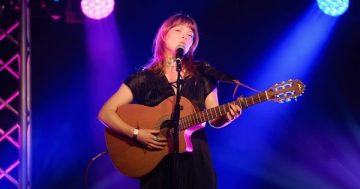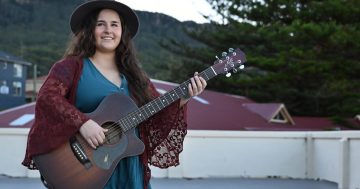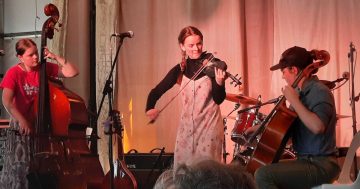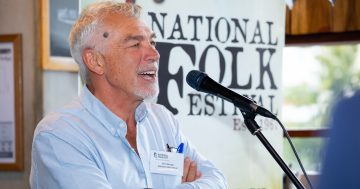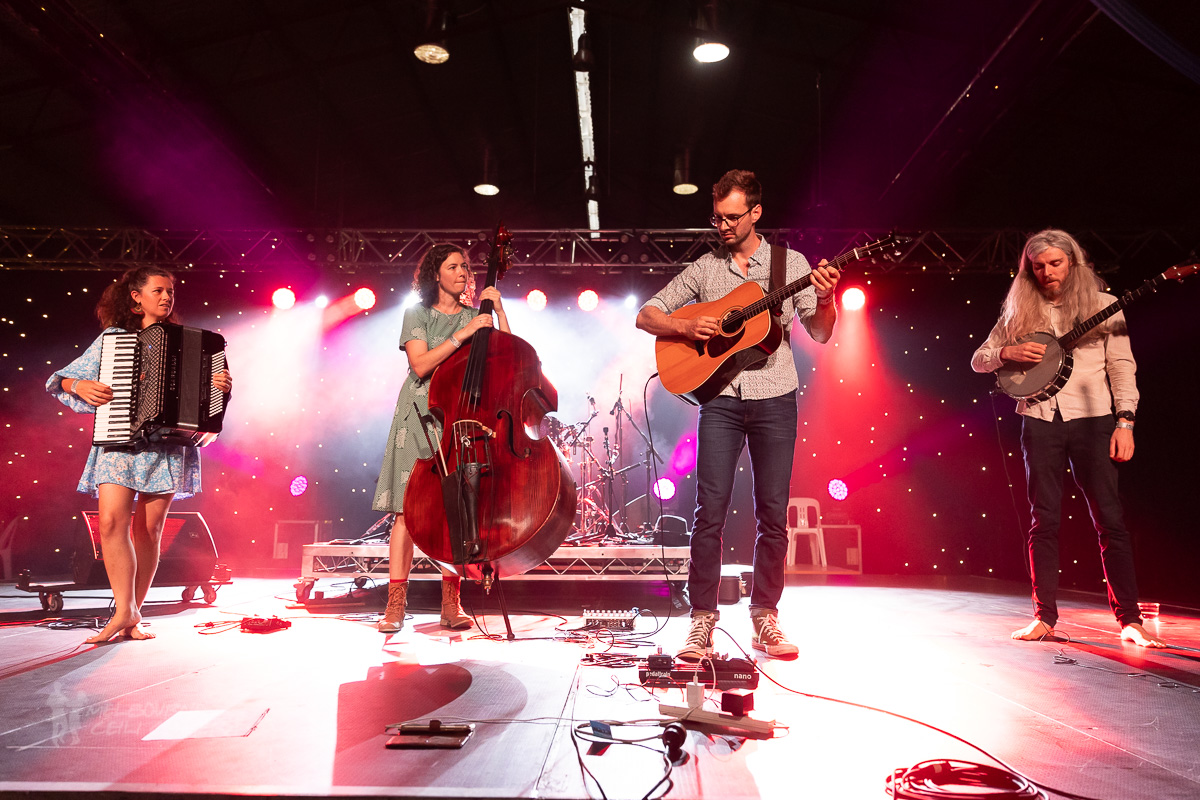
The Good Behaviours performing at the 2024 National Folk Festival. Festivals are more than just events, the NFF says. Photo: Melbourne Ceili Camera/NFF Facebook.
The National Folk Festival has pitched for more reliable and predictable government funding for community-based live music based on the benefits it brings to local communities’ economic, social and cultural life.
The NFF made its submission to the parliamentary inquiry into the challenges and opportunities around the Australian live music industry before booking a potential $450,000 loss from this year’s event, which drew about 10,000 fewer patrons than the pre-pandemic figure of 40,000.
The NFF said its submission was not just to highlight its own plight but was on behalf of the hundreds of community festivals across Australia that have shared a similar fate since COVID, of changing audience patterns and falling ticket sales amid the cost of living crisis.
The view that crowds would rebound after COVID has not been vindicated, and many festivals and artists are hurting and their futures under threat, the submission says.
“Inflationary pressures continue to raise costs to produce events, and ongoing changes in audience behaviours since the COVID pandemic are squeezing revenues,” the submission says.
“It is increasingly unsustainable for festivals and events to be produced when audiences prefer to purchase tickets at the last minute and continue to be less likely to attend live music events than before the pandemic.
“These dynamics mean that community festivals are using their financial reserves and needing to consider their ability to continue into the future.”
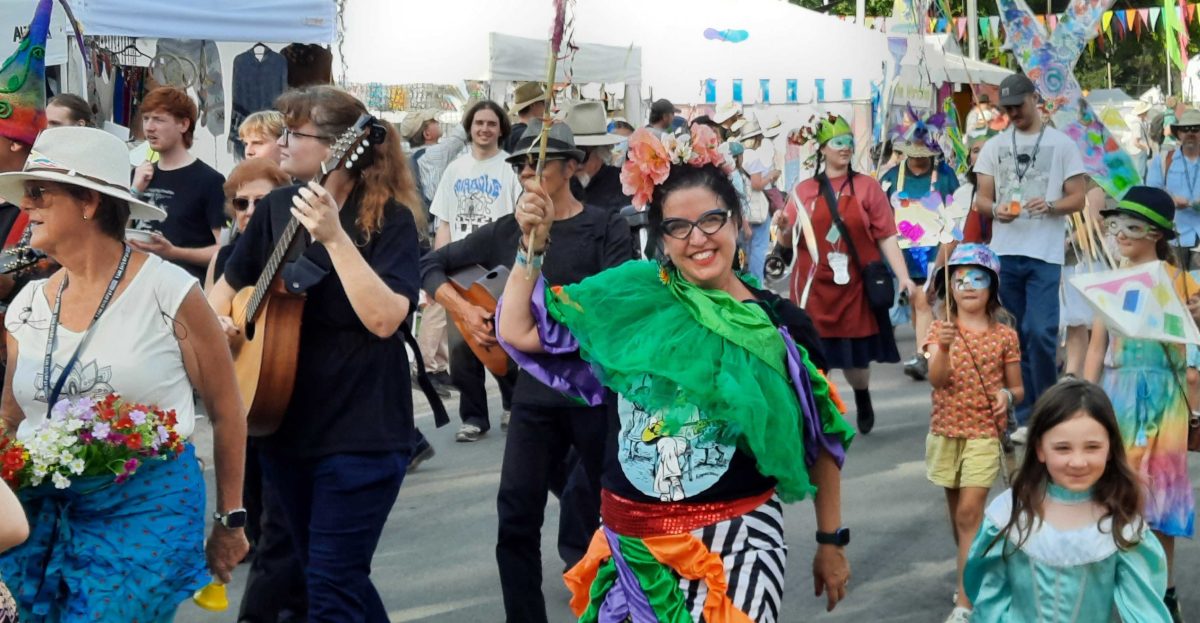
The 2024 National Folk Festival Parade. Festivals foster community participation and inclusion, the NFF says. Photo: Ian Bushnell.
Government support during the pandemic was a lifeline for festivals, but the NFF says that in light of this new reality, government needs to revise the way it funds live music and the arts.
“This support needs to be predictable and reliable to enable long-term decision-making by event organisers and to provide the sustainable path forward that supports community festivals to thrive and recognise the unique impact they make to Australia’s cultural life,” the submission says.
It drew a line between the large corporate-run festivals that attract established stars and take profits out of the country with those run by non-profit organisations and volunteers that provide a return to the local economy, boost tourism, foster home-grown and emerging talent and enhance the cultural life of communities.
“Community festivals, with their strong focus on art and community, are able to achieve significant outcomes that enrich Australia’s culture in an outsized way,” the submission says.
They also foster community participation, inclusion and diversity, social cohesion and volunteerism, it says
Unfortunately, government often fails to recognise this. The NFF quoted the Yuin Folk Club, which runs the Cobargo Folk Festival on the South Coast and said in its submission to the National Cultural Policy Review: “Regrettably, the contribution of small and medium-sized festivals to the cultural sector is rarely acknowledged by arts funding bodies as culturally or artistically significant and worthy of funding support.
“Our events are often viewed at best as retail tourism attractors or, at worst, quaint local vanities run by well-meaning amateurs. Arts funding is hard to come by.”
The NFF says this lack of funding is borne out by the music festival industry’s Soundcheck Report, which found that after rising operational costs, the second most significant barrier to running a music festival is lack of funding and available grants, with 39 per cent of festivals saying this has a severe or major impact on their event.













